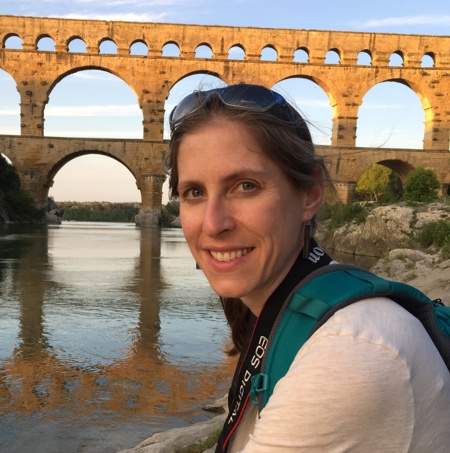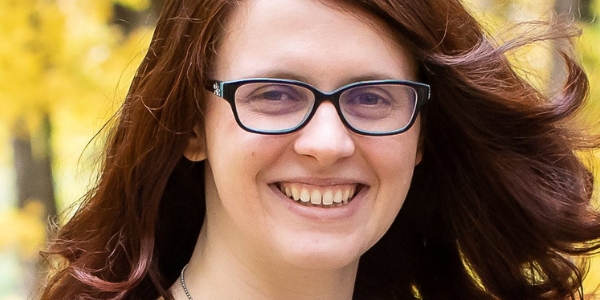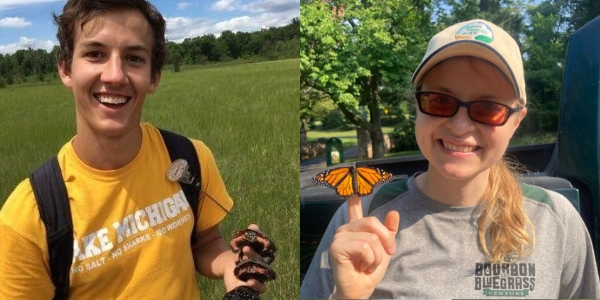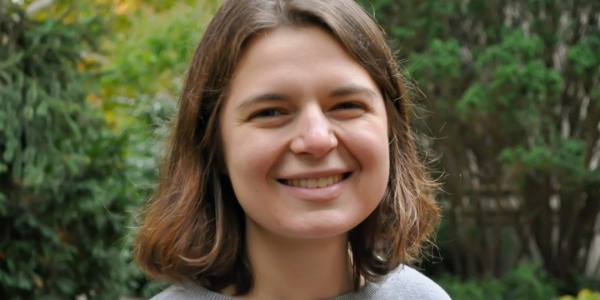National Academies release multi-scale research report
A major report identifying how best to understand important themes and theory for research across the very small to sweeping exploration at a continental scale will be released this Thursday. Two Michigan State University scholars were part of the report.
“A Vision for Continental-Scale Biology: Research Across Multiple Scales” will be presented in a public webinar 2-3 p.m. Thursday, Oct. 24.
Jianguo “Jack” Liu, University Distinguished Professor and Rachel Carson Chair in Sustainability in the department of

fisheries and wildlife is chair of the Committee and Phoebe Zarnetske, an associate professor of spatial and community ecology in the department of integrative biology, is one of 12 members of the National Academies of Sciences, Engineering, and Medicine committee.
Both are members of MSU’s Ecology, Evolution and Behavior Program.
This report, prepared at the request of the National Science Foundation, sets out
a vision for the development of continental-scale biology, identifying research areas
that could most benefit from a multi-scale approach (from molecular to global scales),
and providing recommendations for the research community, funders, and decision-makers
that will help advance the field.
The webinar will provide an opportunity for the public to learn about the report's
findings and recommendations and submit questions to members of the authoring committee.
“Understanding the real-world phenomena cannot be done at either a small or large scale,” Liu said. “Different scales bring

different dynamics and properties and attributes. Some of what happens at large scales emerge from the interactions at the small scales.”
The committee’s work will help researchers to better understand and contextualize the connections among many different realms of continental-scale biology and guide ways for scientists to develop more effective and sustainable solutions to the environmental and ecological challenges facing the planet.
Liu, director of MSU's Center for Systems Integration and Sustainability, has conducted cutting-edge research across multiple scales (local to global) through integrating theories, methods, and data from approximately three dozen diverse disciplines. He was a coordinating lead author of the influential global assessment report on biodiversity and ecosystem services organized by the Intergovernmental Platform on Biodiversity and Ecosystem Services, which was approved by 132 countries in 2019. His pioneering work on telecoupling has become a research priority of the Global Land Programme. He also has made significant scholarly contributions in developing and operationalizing the integrated metacoupling framework for achieving the United Nations’ Sustainable Developmental Goals around the world.
Zarnetske is the director of the Institute for Biodiversity, Ecology, Evolution, and Macrosystems. She co-leads the NSF-funded Climate Intervention Biology Working Group, bringing together experts in climate science and ecology to research the potential ecological impacts from climate intervention. Her research on climate change ecology has elucidated important roles of biotic interactions among species, and how these interactions can exacerbate the impacts of climate change on biodiversity.
Zarnetske’s research integrates insights from climate change experiments with macrosystems science and modeling of big data in ecology across spatial scales. In particular, she has produced research and educational tools with data from NSF’s National Ecological Observatory Network (NEON) – the largest continental-scale observatory network in the world, designed to collect long-term open access data on ecological changes across U.S. ecosystems. As lead PI of two NSF Macrosystems grants Zarnetske’s research has advanced understanding of the impacts of climate, geodiversity, and land cover change on biodiversity across NEON.
Register for the free webinar here.



